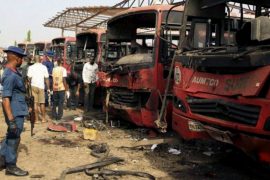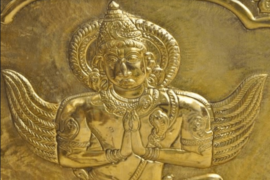Bangladesh is in turmoil. Prime Minister Sheikh Hasina has had to resign and flee the country. She landed in India and is now seeking asylum in the United Kingdom. Discontent with Sheikh Hasina’s regime has been brewing for over a year. The people of Bangladesh were frustrated with her dictatorial rule.
Moreover, inequitable distribution of income and wealth, soaring inflation and unemployment, and the rise of Islamist fundamentalism are some of the factors that have been instrumental in fomenting a sense of disenchantment with her regime.
The trigger started with the elections in January 2024. It is widely believed that Sheikh Hasina, who held a tight grip on power since 2009, manipulated elections to her advantage. Since then, Bangladesh has witnessed significant unrest. The society was deeply polarised, leading to tensions and civil unrest.
In June, student protests erupted. Nahid Islam, a student in the Sociology Department at Dhaka University, led them. What started as a call for reform and the anti-quota movement morphed into an anti-government movement demanding Sheikh Hasina’s resignation. Soon, the demonstrations swept across Bangladesh.
Moreover, the widespread belief that Sheikh Hasina is Modi’s stooge, propagated by Islamist organisations like Jamaat-e-Islami, triggered anti-India riots. The Islamists propagated the myth that the Bangladesh government was being remote-controlled from New Delhi.
These demonstrations quickly turned violent. The demonstrators attacked public buildings and infrastructure and obstructed traffic and railway lines. The violence continued through July.
Despite a judgement by the Supreme Court of Bangladesh on 21 July, the agitations did not stop. The government’s high-handed actions further exacerbated the situation, and the demonstrators coalesced around a single-point agenda: that Prime Minister Sheikh Hasina should step down. Violence escalated further, and hundreds of people died.
On 4 August, demonstrators started attacking police stations and government installations. Soon, the overall levels of violence escalated, and properties of individuals associated with Sheikh Hasina’s regime were torched across the country. Islamist extremists started attacking minorities — particularly Hindus, their businesses and temples — at multiple locations.
The next day, despite the curfew, demonstrators converged in Dhaka, stormed the Prime Minister’s residence and declared victory for the people’s movement. After meeting the leaders of Bangladesh’s military, Sheikh Hasina decided to resign. Soon after, she fled the country and arrived in India on the same day. She is now seeking asylum in the UK.
The Army Chief of Bangladesh, General Waqar-us-Zaman, addressed the people of Bangladesh and assured them that the army would constitute an interim government.
People are calling this a ‘second liberation,’ which the country ought to ‘celebrate.’ In the meantime, Khaleda Zia, Sheikh Hasina’s arch-rival, was released from prison. On Tuesday night, Muhammad Yunus, a Nobel Peace Prize laureate and an economist, has been chosen to lead the interim government in Bangladesh. Though Yunus will be the face, it is likely that the government will be controlled by Islamists supported by foreign powers.
The turmoil in Bangladesh will likely trigger a series of security issues for its neighbours, particularly India. Given the strategic location of Bangladesh and the role India played in helping the nation become an independent state, Islamist extremists, primarily supported by Pakistan, will find ways to create trouble. Political instability in Bangladesh will be advantageous for two foreign powers — the United States and China — who will each seek to use the situation to their advantage.
-30-
Copyright©Madras Courier, All Rights Reserved. You may share using our article tools. Please don't cut articles from madrascourier.com and redistribute by email, post to the web, mobile phone or social media.Please send in your feed back and comments to [email protected]











